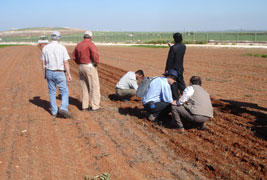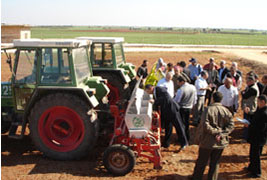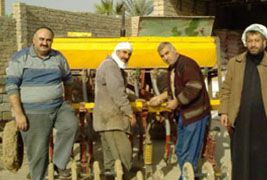This project started in 2005 and aimed to improve the productivity and sustainability of crop production in the drylands of northern Iraq. The work was highly successful in demonstrating that productivity and profitability of crops in the drylands of northern Iraq can be increased by the application of conservation cropping technologies involving zero-tillage, stubble mulching, improved crop cultivars and better management. Additional long-term benefits of conservation cropping include improved soil structure, reduced soil erosion, and enhanced resistance to drought. Adoption of zero-tillage by farmers in Iraq increased from a zero base in 2005-2006 to approximately 6000 hectares in 2010-2011.
As a result, the project was extended to consolidate the research and development achievements and promote wider adoption of conservation cropping practices among farmers in the Ninevah, Kirkuk, Al Anbar and Salahahdin governorates. This initiative was led by the International Center for Agricultural Research in the Dry Areas (ICARDA-Amman office) and coordinated in north Iraq through the University of Mosul and the Ministry of Agriculture.
As a collaborating organisation in Australia, the Barbara Hardy Institute provided contributions towards the development, manufacturing, and adoption of locally adapted and low-cost zero-till seeders, by supporting capacity building activities via research mentoring, technology facilitation and specialised training, conducted both in regional centres (Jordan, Iraqi Kurdistan) and in Australia.



Project funding
This project was funded by the Australian Centre for International Agricultural Research (ACIAR) for four years (2012-2015).
For further information, please contact Jacky Desbiolles.


